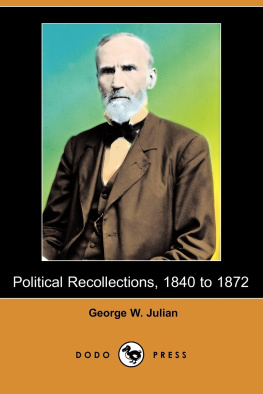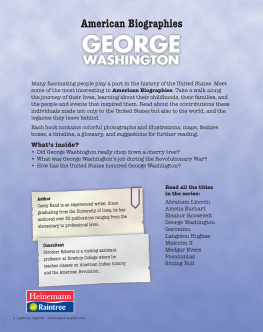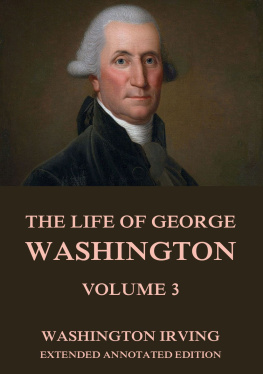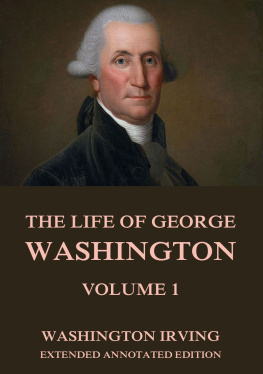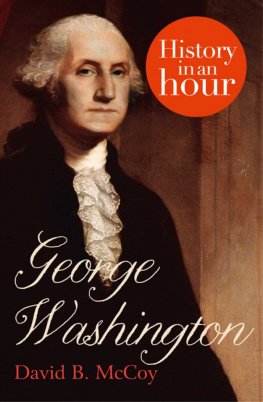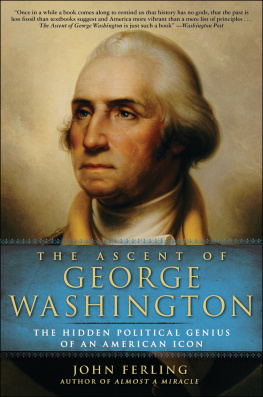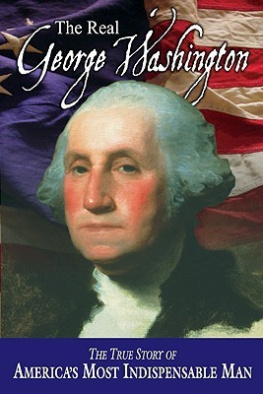Transcriber's notes:
Names have been corrected. "Indianians" changed to "Indianans".
LoC call number: E415.7.J9 1969
POLITICAL RECOLLECTIONS
1840 to 1872.
BY GEORGE W. JULIAN.
MNEMOSYNE PUBLISHING CO., INC. MIAMI, FLORIDA 1969
Originally Published in Chicago 1884
COPYRIGHT
By JANSEN, McCLURG & CO.,
A. D. 1883.
First Mnemosyne reprinting 1969
Reprinted from a copy in the
Fisk University Library Negro Collection
Copyright 1969 Mnemosyne Publishing Co., Inc. Miami, Florida
Library of Congress Catalog Card Number:
78-83885
PREFACE.
The following chapters are devoted mainly to facts and incidents connected with the development of anti-slavery politics from the year 1840 to the close of the work of Reconstruction which followed the late civil war. Other topics, however, are occasionally noticed, while I have deemed it proper to state my own attitude and course of action respecting various public questions, and to refer more particularly to the political strifes of my own State. In doing this, I have spoken freely of conspicuous personalities in connection with their public action, or their peculiar relations to myself; but my aim has been to deal fairly and state only the truth, while striving to weave into my story some reminiscences of the men and events of by-gone times, which may interest the reader. In the endeavor to elucidate the orderly progress of anti-slavery opinions and their translation into organized action, I have summarized and re-stated many of the familiar facts of current American politics during the period embraced; but I hope I have also made a slight contribution to the sources of history bearing upon a world-famous movement, touching which we should "gather up the fragments that nothing be lost."
G. W. J.
CONTENTS.
CHAPTER I. THE HARRISON CAMPAIGNTHE BEGINNING OF ANTI-SLAVERY POLITICS. The "Hard-cider" Frolic of 1840The IssuesSwartwout and Political CorruptionThe Demand for a ChangeCharacter of Gen. Harrison Personal DefamationMass-meetings and SongsCrushing Defeat of the DemocratsFirst Appearance of the Slavery Issue in Politics Pro-slavery Attitude of Harrison and Van BurenEvents favoring the Growth of Anti-slavery OpinionClay and MendenhallTexas' Annexation and John Tyler.
CHAPTER II. CAMPAIGN OF 1844ANNEXATION AND SLAVERY. The Nomination of ClayHis Position on the Slavery Question and AnnexationVan Buren's Letter to Hammett, and its Effect upon the SouthHis Repudiation, and the Nomination of PolkThe Surprise of the CountryUnbounded Confidence of the WhigsThe Course of the New York DemocratsThe "Kane Letter"Trouble among the Whigs on the Annexation QuestionFierceness of the Contest, and singular Ability of the LeadersThe Effect of Clay's Defeat upon the Whigs Causes of the DefeatThe Abolitionists, and the Abuse heaped upon themCassius M. ClayMr. Hoar's Mission to South Carolina Election of John P. HaleAnnexation, and War with MexicoPolk's Message, and the Wilmot ProvisoThe Oregon Question, and Alex. H. Stephens.
CHAPTER III. CAMPAIGN OF 1848ITS INCIDENTS AND RESULTS. Approach of another Presidential CampaignParty Divisions threatened by the Wilmot ProvisoNomination of Gen. CassThe "Nicholson Letter"Democratic Division in New YorkNomination of Gen. Taylor Whig DivisionsBirth of the Free Soil PartyBuffalo Convention Nomination of Van Buren and AdamsDifficulty of uniting on Van BurenIncidentsRev. Joshua LeavittWork of the CampaignWebster and Free SoilGreeley and SewardAbuse of Whig BoltersRemarkable Results of the Canvass.
CHAPTER IV. REMINISCENCES OF THE THIRTY-FIRST CONGRESS. Novel Political ComplicationsCompromise MeasuresFirst Election to CongressSketch of the "Immortal Nine"The Speakership and Wm. J. BrownGen. Taylor and the Wilmot ProvisoSlaveholding BlusterCompromise Resolutions of Clay and Retreat of Northern WhigsVisit to Gen. TaylorTo Mr. ClayHis SpeechesWebster's Seventh of March SpeechCalhounSpeech on the Slavery Question.
CHAPTER V. THE THIRTY-FIRST CONGRESS (CONTINUED). Fracas between Col. Benton and Senator FosterCharacter of Benton Death of Gen. TaylorThe FuneralDefeat of the "Omnibus Bill" Its Triumph in DetailCelebration of the Victory"Lower Law" Sermons and "Union-Saving" MeetingsSlaveholding Literature Mischievous LegislationVisit to Philadelphia and BostonFutile Efforts to suppress AgitationAndrew Johnson and the Homestead LawEffort to censure Mr. WebsterPolitical Morality in this CongressTemperanceJefferson DavisJohn P. HaleThaddeus StevensExtracts from SpeechesFamous Men in both HousesFree Soilers and their Vindication.
CHAPTER VI. THE EVOLUTION OF THE REPUBLICAN PARTY. Pro-slavery ReactionIndiana and OhioRace for CongressFree Soil Gains in other StatesNational Convention at Cleveland National Canvass of 1852Nomination of Pierce and Scott, and the "finality" PlatformsFree Soil National ConventionNomination of HaleSamuel LewisThe Whig CanvassWebsterCanvass of the DemocratsReturn of New York "Barnburners" to the PartyThe Free Soil CampaignStumping Kentucky with ClayRev. John G. Fee IncidentsMob Law in IndianaResult of the CanvassRuin of the WhigsDisheartening FactsThe other Side of the Picture.
CHAPTER VII. THE REPUBLICAN PARTY (CONTINUED). A Notable Fugitive Slave CaseInauguration of PierceRepeal of the Missouri CompromiseIts Effects upon the PartiesThe Free Soil PositionKnow-NothingismThe SituationFirst Steps in the Formation of the Republican PartyMovements of the Know-Nothings Mistake of the Free SoilersAnti-slavery ProgressElection of Banks as SpeakerCall for a Republican National Convention at PittsburgOrganization of the PartyThe Philadelphia Convention and its PlatformNomination of FremontKnow-Nothing and Whig NominationsDemocratic Nomination and PlatformThe Grand Issue of the CampaignThe Democratic CanvassThe splendid Fight for FremontTriumph of BuchananIts Causes and ResultsThe Teaching of Events.
CHAPTER VIII. PROGRESS OF REPUBLICANISM. The Dred Scott DecisionStruggle for Freedom in KansasInstructive Debates in CongressRepublican Gains in the Thirty-fifth Congress The English BillIts Defeat and the EffectDefection of Douglas Its Advantages and its PerilsStrange Course of the New York Tribune and other PapersRepublican Retreat in IndianaIllinois Republicans stand firm, and hold the Party to its PositionGains in the Thirty-sixth CongressSouthern Barbarism and Extravagance John Brown's RaidCuba and the Slave-tradeOregon and Kansas Aids to Anti-slavery ProgressThe Speakership and Helper's Book Southern Insolence and ExtravaganceDegradation of DouglasSlave- code for the TerritoriesOutrages in the SouthCampaign of 1860 Charleston Convention and Division of the DemocratsMadness of the FactionsBell and EverettRepublican Convention and its PlatformLincoln and SewardCanvass of DouglasCampaign for LincolnConduct of SewardRepublican Concessions and slave-holding Madness.
CHAPTER IX. THE NEW ADMINISTRATION AND THE WAR. Visit to Mr. LincolnClosing Months of Mr. Buchanan's Administration Efforts to avoid WarCharacter of BuchananLincoln's Inauguration His War PolicyThe Grand Army of Office-seekersThe July Session of CongressThe Atmosphere of WashingtonBattle of Bull Run Apologetic Resolve of CongressFirst Confiscation ActGen. Fremont's Proclamation and its EffectIts RevocationRegular Session of CongressSecretary CameronCommittee on the Conduct of the WarIts Conference with the President and his Cabinet Secretary Stanton and General McClellanOrder to march upon Manassas.
CHAPTER X. THE NEW ADMINISTRATION AND THE WAR (CONTINUED). The Wooden GunsConference with Secretary StantonHis Relations to LincolnStrife between Radicalism and ConservatismPassage of the Homestead LawVisit to the PresidentThe Confiscation Act and Rebel Land ownersGreeley's "Prayer of Twenty Millions," and Lincoln's ReplyEffort to disband the Republican PartyThe Battle of Fredericksburg and General BurnsideThe Proclamation of EmancipationVisit to Mr. LincolnGeneral FremontReport of the War CommitteeVisit to Philadelphia and New YorkGerrit Smith The Morgan Raid.

